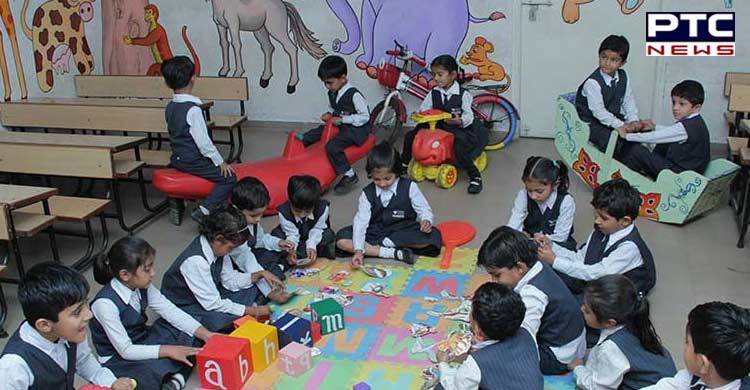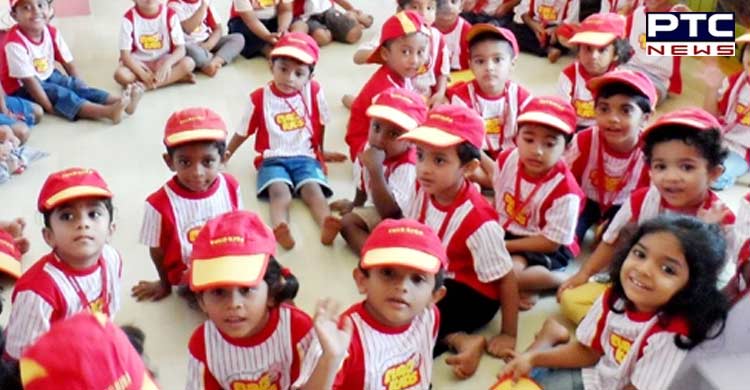Covid-19 pandemic continues to wreak havoc across the globe, worst-hitting several sectors including the education sector. The sector has been affected to a high stage, especially those in pre-primary education. Focusing on the impact of the Covid-19 pandemic on pre-primary children, a new study revealed that pre-primary education proved to be essential in preventing 'alarming' learning losses.
 The study was conducted by a team of researchers from the University of Cambridge, Addis Ababa University and the Ethiopian Policy Studies Institute. The report was part of a five-year study, commissioned through the World Bank's Early Learning Partnership.
The study was conducted by a team of researchers from the University of Cambridge, Addis Ababa University and the Ethiopian Policy Studies Institute. The report was part of a five-year study, commissioned through the World Bank's Early Learning Partnership.
 Also Read: UGC NET results anytime soon
According to the research, for students who entered primary education immediately after schools reopened, learning losses were far less severe if they had been in pre-primary education prior to the Covid-19 outbreak. The learning deficit among children without this pre-primary experience was four times greater. The government also found that the education sector was the most neglected part of the Covid-19 pandemic.
Covid-19 played a vital, protective role in limiting learning losses. With new variants of the virus emerging, school disruption has taken place which led to destruction in the education of pre-primary students.
According to research, schools closed for about eight months from March 2020, affecting more than 26 million students, including 3.2 million of pre-primary age. The study examined both the impact on children's primary school readiness and the value of pre-primary education in this context.
Also Read: UGC NET results anytime soon
According to the research, for students who entered primary education immediately after schools reopened, learning losses were far less severe if they had been in pre-primary education prior to the Covid-19 outbreak. The learning deficit among children without this pre-primary experience was four times greater. The government also found that the education sector was the most neglected part of the Covid-19 pandemic.
Covid-19 played a vital, protective role in limiting learning losses. With new variants of the virus emerging, school disruption has taken place which led to destruction in the education of pre-primary students.
According to research, schools closed for about eight months from March 2020, affecting more than 26 million students, including 3.2 million of pre-primary age. The study examined both the impact on children's primary school readiness and the value of pre-primary education in this context.
 Earlier the researchers tracked the progress of 2,600 children who were of pre-primary school age in the academic year 2019/20 and became eligible to start primary school in 2020/21. Even though Covid-19 students spent less time in the online classes than expected, they still performed much better in both numeracy tests.
While this showed that all children made some progress, it also suggested that those without formal pre-primary education were a full year behind their peers by the time they started primary school.
To establish how much learning was lost during the pandemic, the study then compared the group's test scores at the point when they started primary school, in 2020, with those of a cohort of 2,700 children who started primary school in 2018. And thus the average score in the 2020 cohort was 7.4 percentage points lower than the pre-pandemic group.
Children without a pre-primary education were also far less likely to enter primary school at all after the pandemic. About 92 percent of the O-class children enrolled in primary classes after schools reopened, compared with just 50 percent of those who had not been in pre-primary.
Government and educational officials raised concerns about the lack of education for pre-primary children. The report found that a lack of policy prioritisation for pre-primary and limited coordination between services meant that local resources, which might have otherwise kept young children learning, were not used effectively.
Earlier the researchers tracked the progress of 2,600 children who were of pre-primary school age in the academic year 2019/20 and became eligible to start primary school in 2020/21. Even though Covid-19 students spent less time in the online classes than expected, they still performed much better in both numeracy tests.
While this showed that all children made some progress, it also suggested that those without formal pre-primary education were a full year behind their peers by the time they started primary school.
To establish how much learning was lost during the pandemic, the study then compared the group's test scores at the point when they started primary school, in 2020, with those of a cohort of 2,700 children who started primary school in 2018. And thus the average score in the 2020 cohort was 7.4 percentage points lower than the pre-pandemic group.
Children without a pre-primary education were also far less likely to enter primary school at all after the pandemic. About 92 percent of the O-class children enrolled in primary classes after schools reopened, compared with just 50 percent of those who had not been in pre-primary.
Government and educational officials raised concerns about the lack of education for pre-primary children. The report found that a lack of policy prioritisation for pre-primary and limited coordination between services meant that local resources, which might have otherwise kept young children learning, were not used effectively.
 The report urged governments to widen access to quality pre-primary education and to make it central to education recovery planning. It adds that less-advantaged children, who have clearly missed out most, should be prioritised.
Also Read: Karnataka: Students refuse to take exams without hijabs
"Pre-primary education raises particular challenges about how to support young children and families when schools close, but that shouldn't stop us from finding solutions," researchers added.
-PTC News
The report urged governments to widen access to quality pre-primary education and to make it central to education recovery planning. It adds that less-advantaged children, who have clearly missed out most, should be prioritised.
Also Read: Karnataka: Students refuse to take exams without hijabs
"Pre-primary education raises particular challenges about how to support young children and families when schools close, but that shouldn't stop us from finding solutions," researchers added.
-PTC News
